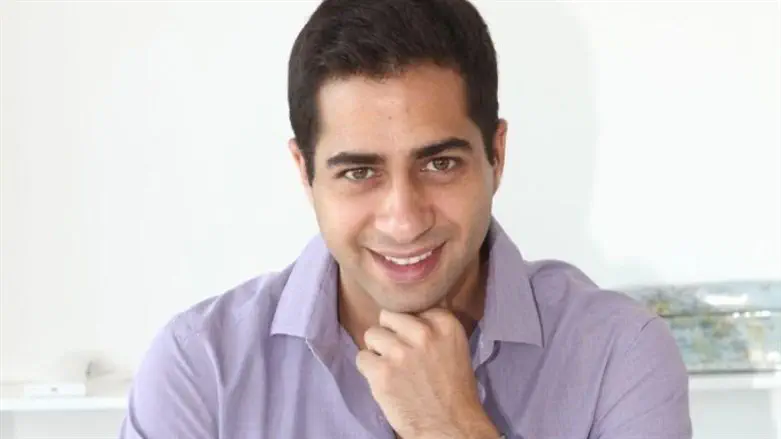
In the first quarter of 2021, digital healthcare companies raised a total of $ 6.7 billion in venture capital funds.
The rapid growth of digital health raises many questions, such as what will the healthcare industry look like in the future? And what will be the implications of this change for public health? Gilad Tisona, Chairman of the digital health company helfy.co, gave us a glimpse into the future
The COVID-19 crisis has radically changed the place digital health occupies in our lives. Many leading figures in the medical sector, public medicine, high-tech and government, are trying to find ways to develop and promote the implementation of digital health after its effectiveness has been proven.
Telephone appointments, management of patient's medical information, monitoring of recovery data - all of these have greatly helped to diagnose and treat patients remotely. Who knows what could have happened without digital healthcare during the global COVID-19 crisis that befell us?
But instead of asking "what could have happened?", it is more interesting to ask, "what does the future hold?". To that end, we sat down for a chat with Gilad Tisona, chairman of the digital health company helfy.co, which specializes in providing a personalized response to patients across Europe - directly from scheduling appointments, through diagnosis to receiving the drug and complementary therapy.
Get Back the Responsibility on our Body
When we think about "digital health" we think of sophisticated solutions that will facilitate the processes of diagnosis and detection of diseases, big data, and custom genomic medicine. This is just a part of what the digital health revolution offers. According to many experts, the great change that the future of digital health will bring is related to the empowerment of the patients by giving them an awareness of their body and health.
"I think the future of digital health lies in providing transparency to the patients regarding their health, which will allow them to take the reins when it comes to their health condition," says Gilad Tisona. "This will lead to an improved public health sector, a reduction in the burden that medical staffs need to deal with and much lower medical costs."
How will digital health help us stay healthy?
Gilad Tisona: "Once each of us has access and constant monitoring of our personal medical data, we will become more aware of our health and hence we will take actions that will benefit ourselves and our body. Think of the banking apps that show you the bank account status at any given moment, it is a great tool that helps many in their economic conduct. Digital health has a revolutionary dimension because until now the doctor is the one who supposedly determined what we need to do to be healthy because he had the data and knowledge. It created a certain detachment of the modern man from the body and his needs. We get the information back - and the responsibility - on our bodies.”
Safety first
Digital health will reshape the ways in which we access health services, and it will even change the way we think about our bodies and our health. It will also completely change the way we work within the healthcare system. Many people fear that this change could create new and unpredictable safety risks, so we asked Gilad Tisona what he thinks about the challenges facing digital health?
Many people are afraid to store personal information in the app, even for medical purposes. Is our personal information safe?
"In general, applications and public health systems need to invest in quality control systems and cyber security in order to protect patients' medical information. I expect that in this area too there will be a huge boom. The cyber security landscape is constantly changing, new threats are emerging, and it is challenging to understand how much and what protection should be invested in the software. Most of the efforts should be invested in this area, and it is vital to build trust in digital health among the general public. Investing in cyber security in the field of medical information applications will increase the privacy of the information, which is still found today in computerized systems of various medical institutes”, said Gilad Tisona.
There seems to be a lot of emphasis on the patient. What will the medical staff and patients gain from the transition to digital health?
Gilad Tisona: "Of course at the individual, micro level, the transition to applications that provide digital health services can be a temporary obstacle for certain populations: the elderly, or doctors and older medical staff who are not used to technology. These problems can be solved with apprenticeships. You will be amazed at how much user experience and app design can improve the situation among the older population."
Another interesting issue in the future of digital medicine has to do with the issue of boundaries, licenses, and regulations. Through digital health, physicians will be able to expand their field of activity beyond the borders of the country in which they are physically located. To support this change, which could improve the health of millions (for example, patients with rare diseases who will be assigned to doctors from other countries who specialize in these diseases), the governments and health laws in place will have to undergo metamorphosis and adapt to the new situation.
Gilad Tisona is an Israeli businessman and entrepreneur who invests and develops software and patents related to digital health. Tisona is the chairman of helfy.co, a company specializing in providing digital solutions and helps patients obtain service from specialist doctors and prescriptions with maximum convenience. helfy.co allows people with reduced mobility, the elderly, and patients with chronic diseases to get the most out of today's advanced technology.
